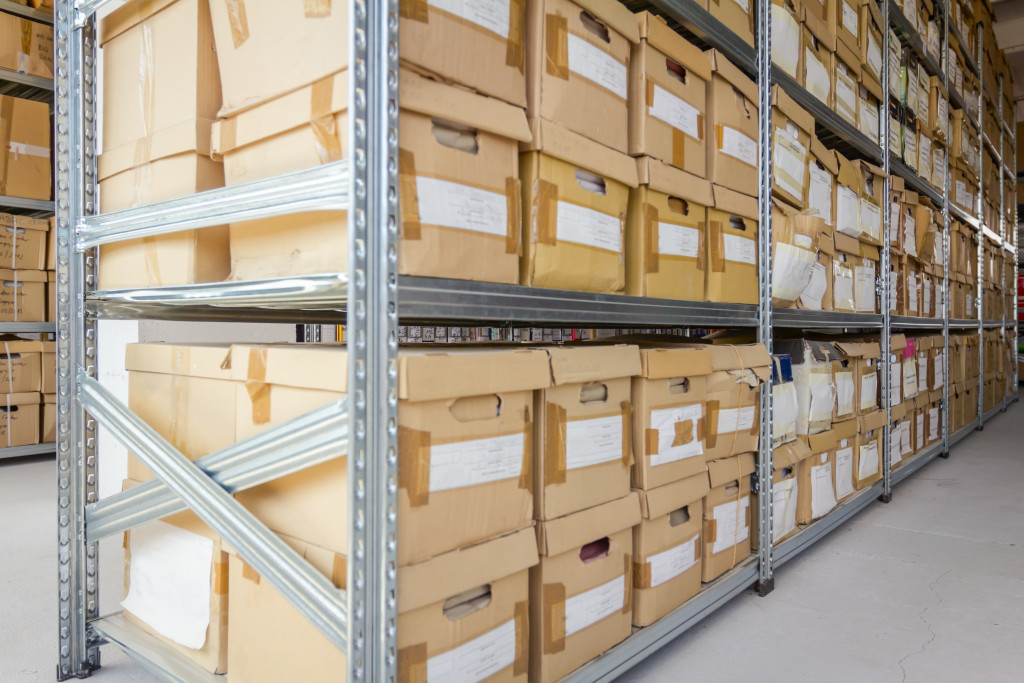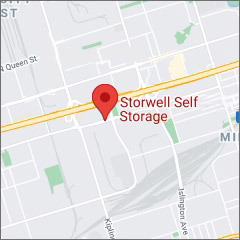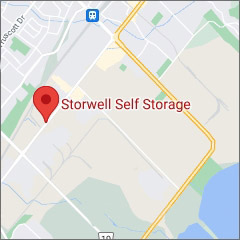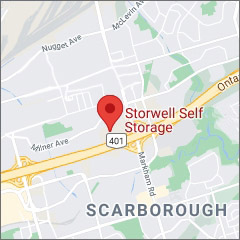A place for everything, and everything in its place.
A Totally-Not-Boring Blog About Storage
Tips for Storing Business Files in Self-Storage
Table of Contents
- Decide what you will keep
- Choose the right type of self-storage unit
- Organize your documents properly for storage
- Store vertically
- Invest in document storage solutions
- Designate which employees have access to the documents
- Create a log for document entries and exits
- Additional tips for storing your important documents in a self-storage unit
- Storing Business Files with Storwell

All businesses, big or small, must keep some records written on paper. Business owners and managers know that keeping physical records is vital. Not only do you have to retain records to comply with the Canada Revenue Agency, but you need to keep employee files, contracts, even paperwork for warranties.
While digital records are starting to become the norm, plenty of businesses still have physical records that they need to keep safe and organized. Businesses like accounting or legal firms deal with a huge volume of paper documents due to the nature of their work. Businesses with large amounts of paper documents must keep their documents in a safe place.

Cluttering an office with filing cabinets is uncomfortable for employees, and renting a larger office is expensive. Fortunately, there’s a simple and more affordable solution to this problem. Businesses across the GTA work with Storwell and rent self-storage units in Scarborough, Mississauga, and Etobicoke to store their documents and files. Before you put your business files into self-storage, here are a few things you should consider.
Decide what you will keep
The first thing you should do before storing your business files in self-storage is to go through your documents and decide what you will keep. It is likely that your organization is holding on to a lot of outdated and unnecessary documents. You will want to get rid of any irrelevant or redundant documentation. The best way to do this is through shredding so that any sensitive information on the documents is completely destroyed. If you’re dealing with older employee files with personal information, or even files that had payment information, you need to make sure you are disposing of things properly. Many self-storage facilities offer on-site shredding services just for this reason.
Choose the right type of self-storage unit
Paper documents are fragile. Environmental factors like humidity and extreme temperatures will damage or render them unreadable. It’s important to pick a power-ventilated storage unit that moderates humidity and temperature throughout the year. This way, documents are safe for long periods.
Organize your documents properly for storage
Your main goals are to keep your documents safe and to have easy access to them when needed. You can achieve both goals by organizing your documents properly. Use paper envelopes or plastic holders to separate your documents by category, date and so on. Then, put the documents in sturdy, lidded and transparent plastic boxes. Attach a label to each box with information about the documents inside. Use shelves to arrange the boxes in your storage unit.
Store vertically
It’s more efficient to store upwards. This will mean you either need to use very sturdy, plastic file boxes, or invest in shelving. Shelving has the added benefit that you don’t need to move 5 boxes to get to the one you really need. Make sure you keep ‘like’ files with ‘like’ files. For example, you might want to keep all employee files towards the back of your store unit. Or you might want to keep all financial information on the right side of your storage unit, with oldest years at the back. Whichever system you choose, make sure you are consistent and keep up with it. It is a good practice to arrange items that you won’t need as often, at the back of your unit. This would be older financial years, for example. And you can organize your storage unit by year, rather than category. This lets you add in order, and not have to make more room when you add another box to the back corner of your storage unit when you need another box of tax information.

Invest in document storage solutions
Once all your documents are sorted and organized, you’ll want to keep them in a safe and secure spot; something more efficient than envelopes or file organizers. For that reason, invest in a filing cabinet or storage shelf that you can place in your storage unit. Filing cabinets are great for keeping your documents protected from the elements and are available in multiple sizes, shapes and materials. Metal filing cabinets are going to be the most reliable, durable and weatherproof option. Most will come with rails that can accommodate file organizers easily, which makes them a useful option. Storage shelves with boxes or plastic bins are another great option to keep your documents stored and organized. Shelves with file boxes may be a cheaper alternative than a filing cabinet and offer you the opportunity to visibly see record boxes and documents.
Designate which employees have access to the documents
You can provide an employee ‑ or several employees, depending on the size of your business ‑ with access to the storage unit. Giving all employees free access to the unit could create unwanted situations. Documents can get lost or disorganized. Tasking one person or a small group with retrieving and replacing documents helps avoid these issues.
Create a log for document entries and exits
A document log serves two purposes. First, you have clear records of accessed documents. Second, the log informs you when older documents are no longer necessary. There are different time limits for keeping certain paper documents, so it’s useful to note in your log how long you need to keep each one. This way, when time’s up, you can shred them and avoid clutter from papers that are no longer needed. If you are going to have more than one individual accessing your storage unit for documents, place a log in the storage unit that the employee can sign in/out and the document they accessed. This ensures that your employees can access items when needed, but also keeps your documentation secure.

Additional tips for storing your important documents in a self-storage unit
Once you have made the decision that you want to store your business documents in a self-storage unit, there are several things you need to keep in mind when getting your files prepared.
- Don’t share your security code or the keys to the unit where the documents are stored with many people. In most cases, there are going to be personal files that are stored, and these only need to be accessed by individuals who have the proper authorization.
- When you are packing your document boxes, you need to make sure that you fill the boxes all the way to the top, and that you add filler material. Don’t try to overstuff the boxes. Also, don’t use newspaper as your filler, as the print may rub off on your documents.
- Save your monthly storage bill as you may be able to deduct the cost of your storage unit during tax season.
- Be sure that your document storage boxes are no more than 30 to 50 pounds. This will ensure you can move and lift them with ease.
- Don’t leave the document storage boxes sitting on the ground. Instead, raise them up using shelving, plastic sheeting, or by putting the boxes on pallets.
- If it is possible, try to use boxes that have air tight packaging for your documents. This will protect them from any type of water damage if there happens to be a flood.
- Be sure to label all of your boxes with what is inside of them. You can use a numbering system for the stored boxes that you can then list in a spreadsheet to cross-check things when necessary. This will also make it easier for you to find the documents you need when the time arrives.
- Backup all of your files digitally if possible.
- If you are planning on storing files for a long period of time, consider removing all staples.
- For very sensitive documents, place them in airtight or plastic boxes with acid-free paper.
- If you are storing filing cabinets, check documents occasionally to be certain they are not being compromised by temperature. Even in the most controlled facility, your important documents should be checked for this.
Storing Business Files with Storwell
Storwell has a number of security features available at each facility that work overtime to keep your sensitive documents and files secure. These features include 24-hour video camera surveillance, pass code gate access, and individually alarmed units. Storwell facilities provide convenient features like drive-up access that allow you to pull right up to your space for simple unloading and loading, which can save you time. Storwell also offers 24/7 gate access so that you can stop by your storage unit whenever it works with your schedule. If you’re running a small business that gets a lot of deliveries, and you’re concerned about those packages being left out in the open, Storwell accepts deliveries, which means you can get packages delivered right to your secure storage unit.
You want peace of mind when you’re running a business. You want to know that everything is in its right place and that it’s secure. Choosing a self-storage facility with the proper safety precautions is of the upmost importance when deciding where to store your important and confidential business documents. Storwell Self Storage is a great option for business storage; our facilities have state-of-the-art security features to ensure that our customers’ items are properly taken care of.



